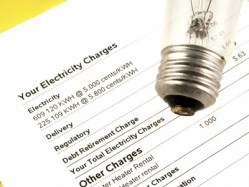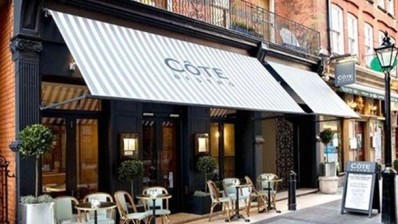Restaurant groups cut energy consumption by up to 15% by changing staff behaviour

That was one of the findings revealed at the Hospitality Sector Carbon Reduction Forum in London last week where members from more than 40 different pub and restaurant brands came together to share ideas on how they could cut carbon emissions from their businesses.
Asking staff to adopt changes to their behaviour around energy consumption, such as only turning on the number of ovens needed for a particular service or turning lights off in unoccupied rooms or areas, had led to a drop of 15 per cent in energy consumption across Pizza Hut's business while installing LED lights at another restaurant group had led to savings of 23 per cent in energy output.
Carbon reduction
Mark Chapman, managing director of Carbon Statement, organiser of the forum, said the carbon savings could be even greater within independent businesses or at a group's individual sites.
"When we look at the pub groups, for example the savings of 15 to 20 per cent will be across the whole estate, so the saving at an individual site could be as much as 40 to 50 per cent.
"It's all about changing habits. As much as cleanliness in a kitchen is part of a habit, thinking about turning off a fryer when it isn't in use needs to be part of the daily habits."
Chapman said large hospitality companies would also need to keep making energy savings to avoid losing out financially following the introduction of the mandatory Carbon Reduction Commitment scheme last year.
Currently the 3,000 large UK companies, including Whitbread and JD Wetherspoon, enrolled in the scheme have to pay £12 per tonne of carbon used every July and from next April all companies listed on the London Stock Exchange will have to report all carbon emissions in their annual accounts under the Carbon Reporting scheme.
Without making any changes, Chapman calculated that companies would need to sell an extra 97 million pints or 60 million burgers to cover the costs involved in the Carbon Reduction initiative, particularly with energy prices on the rise.
“Despite the 15-20 per cent increases in energy prices, the good news is that a number of leading brands are already achieving the equivalent of a 5 per cent increase in sales through energy saving measures and at the latest meeting we heard of carbon reductions of 15 per cent," he said.
“Developing and implementing plans to reduce energy consumption and changes in employee behaviour, however, remain critical for the sector and to pay for the new tax.”
The next Hospitality Sector Carbon Reduction Forum meeting will take place on 14 November in London. For more details about how to get involved visit www.carbonstatement.com/hospitality.
Mark Chapman shares his steps for improving energy efficiency:
- Make an assessment to determine who is using the most energy in your business
- Conduct energy audits of your business looking at which pieces of equipment are using the most energy
- Assess the marketplace for more energy-efficient equipment and make a business case to fund it
- Set up new initiatives to reduce energy consumption and persuade staff to adopt them
- Install new energy efficient equipment if you can afford it
- Track your progress against set targets
- Publicise your achievements

































